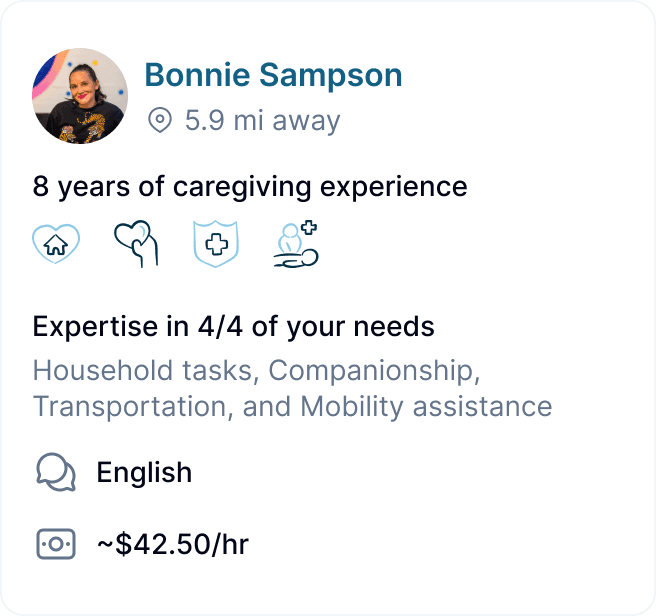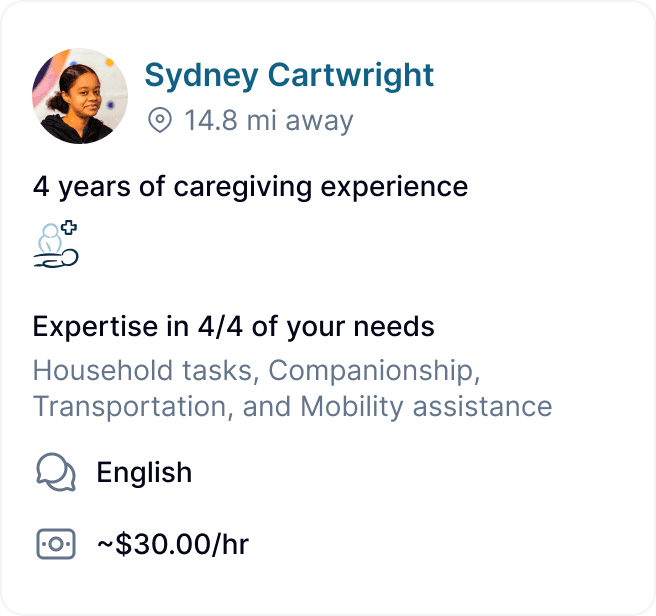How Aging in Place Supports Mental Health for Seniors



As the global population ages, the concept of “aging in place”—remaining in one’s own home and community as one grows older—has become a central focus for families, healthcare professionals, and policymakers alike.
While the practical benefits of aging in place are well-documented, its profound impact on seniors’ mental health is equally significant. Understanding how this approach supports emotional well-being can help families make informed decisions that prioritize both safety and happiness for their loved ones.
Familiarity and Comfort: The Foundation of Well-Being
One of the most immediate mental health benefits of aging in place is the ability for seniors to remain in familiar surroundings. Home is more than just a physical space; it is a repository of memories, routines, and personal identity. Living in a familiar environment provides a sense of safety, comfort, and stability—critical factors that help reduce anxiety, stress, and confusion, especially for those experiencing cognitive decline. The daily presence of cherished objects, family photographs, and even the simple routine of greeting a neighbor can foster a sense of continuity and belonging that institutional settings often lack.
Independence and Autonomy: Preserving Dignity
Aging in place empowers seniors to maintain a sense of independence and control over their daily lives. This autonomy—choosing what to eat, when to wake up, or how to spend the day—has been closely linked to improved mental and physical health outcomes. The ability to make personal decisions, even small ones, reinforces dignity and self-worth. For many, this control is not just about convenience; it is about preserving identity and agency in a stage of life that can otherwise feel defined by loss. In fact, food is one of the main reasons seniors cite for not wanting to move into a senior living facility.
Social Connections: Combating Loneliness and Isolation
Social isolation is a significant risk factor for depression, anxiety, and cognitive decline among older adults. By aging in place, seniors are more likely to remain connected to their established social networks—neighbors, friends, local shops, and places of worship. These connections are not merely social niceties; they are lifelines that support emotional health. Research shows that people with close, supportive relationships tend to live longer, experience fewer feelings of loneliness, and enjoy a better quality of life overall. Conversely, loneliness is associated with a higher risk of dementia, heart disease, and stroke.
Is your loved one struggling with loneliness? See our blog for tips on combatting social isolation for older adults.
Sense of Identity and Belonging
Home is often a reflection of a person’s life story. The ability to maintain and personalize one’s living space reinforces a sense of identity and belonging. For seniors, being surrounded by familiar possessions and the freedom to continue long-standing traditions—hosting family gatherings, gardening, or simply maintaining their home—can be deeply affirming. Forced relocation to an unfamiliar environment can disrupt this sense of self, leading to emotional distress and even depression.
Care and Support For Aging In Place
Aging in place does not mean going it alone. With the right support systems, seniors can receive highly personalized care tailored to their unique needs. In-home care services provide assistance with daily activities, medical needs, and companionship, all within the comfort of home. (See here to learn more about some of the typical duties performed by a caregiver). This individualized approach can be especially important for those with chronic health conditions or mobility challenges, ensuring that care is both compassionate and consistent.
Services like Clara make this process easier for families: by connecting families with vetted caregivers and offering flexible, transparent arrangements, Clara helps seniors receive the support they need without sacrificing independence or comfort. Such services can be arranged quickly and tailored to evolving needs, providing peace of mind for both seniors and their loved ones.
Emotional Security and Reduced Stress
Transitions, especially those involving a move to a care facility, can be highly stressful for older adults. The upheaval of leaving home, parting with possessions, and adapting to new routines often triggers anxiety and sadness. Aging in place minimizes these disruptions, allowing seniors to maintain emotional security and a sense of normalcy. The stability of home life supports mental resilience and helps seniors navigate the challenges of aging with greater confidence.
Practical Steps to Support Aging in Place
While the benefits are clear, successful aging in place requires thoughtful planning and support. Here are some strategies that can help:
Home Modifications: Simple changes like installing grab bars, improving lighting, or adding ramps can enhance safety and accessibility.
In-Home Care: Professional caregivers can assist with personal care, housekeeping, medication management, and companionship.
Technology Solutions: Devices such as medical alert systems, smart home assistants, and security cameras can provide additional safety and peace of mind.
Regular Assessments: Ongoing evaluation of health, mobility, and home safety ensures that seniors’ needs are met as circumstances change.
Aging in Place: A Movement Toward Dignity and Joy
The desire to age in place is more than a preference—it is a movement toward preserving dignity, autonomy, and community for older adults. By supporting seniors in their wish to remain at home, families can help foster emotional well-being, reduce the risk of depression and loneliness, and ensure a higher quality of life.
With the right combination of home modifications, professional care, and community support, aging in place is not just possible-it is profoundly beneficial. Services like Clara Home Care are making it easier than ever for families to embrace this approach, offering affordable, flexible solutions that prioritize seniors’ mental wellbeing.
Ultimately, aging in place is about more than staying put; it is about staying connected-to oneself, to loved ones, and to the life one has built. For seniors and their families, it represents a path to aging with grace, comfort, and joy.
Thinking about aging in place? Click here to learn more about how Clara can support you today.
As the global population ages, the concept of “aging in place”—remaining in one’s own home and community as one grows older—has become a central focus for families, healthcare professionals, and policymakers alike.
While the practical benefits of aging in place are well-documented, its profound impact on seniors’ mental health is equally significant. Understanding how this approach supports emotional well-being can help families make informed decisions that prioritize both safety and happiness for their loved ones.
Familiarity and Comfort: The Foundation of Well-Being
One of the most immediate mental health benefits of aging in place is the ability for seniors to remain in familiar surroundings. Home is more than just a physical space; it is a repository of memories, routines, and personal identity. Living in a familiar environment provides a sense of safety, comfort, and stability—critical factors that help reduce anxiety, stress, and confusion, especially for those experiencing cognitive decline. The daily presence of cherished objects, family photographs, and even the simple routine of greeting a neighbor can foster a sense of continuity and belonging that institutional settings often lack.
Independence and Autonomy: Preserving Dignity
Aging in place empowers seniors to maintain a sense of independence and control over their daily lives. This autonomy—choosing what to eat, when to wake up, or how to spend the day—has been closely linked to improved mental and physical health outcomes. The ability to make personal decisions, even small ones, reinforces dignity and self-worth. For many, this control is not just about convenience; it is about preserving identity and agency in a stage of life that can otherwise feel defined by loss. In fact, food is one of the main reasons seniors cite for not wanting to move into a senior living facility.
Social Connections: Combating Loneliness and Isolation
Social isolation is a significant risk factor for depression, anxiety, and cognitive decline among older adults. By aging in place, seniors are more likely to remain connected to their established social networks—neighbors, friends, local shops, and places of worship. These connections are not merely social niceties; they are lifelines that support emotional health. Research shows that people with close, supportive relationships tend to live longer, experience fewer feelings of loneliness, and enjoy a better quality of life overall. Conversely, loneliness is associated with a higher risk of dementia, heart disease, and stroke.
Is your loved one struggling with loneliness? See our blog for tips on combatting social isolation for older adults.
Sense of Identity and Belonging
Home is often a reflection of a person’s life story. The ability to maintain and personalize one’s living space reinforces a sense of identity and belonging. For seniors, being surrounded by familiar possessions and the freedom to continue long-standing traditions—hosting family gatherings, gardening, or simply maintaining their home—can be deeply affirming. Forced relocation to an unfamiliar environment can disrupt this sense of self, leading to emotional distress and even depression.
Care and Support For Aging In Place
Aging in place does not mean going it alone. With the right support systems, seniors can receive highly personalized care tailored to their unique needs. In-home care services provide assistance with daily activities, medical needs, and companionship, all within the comfort of home. (See here to learn more about some of the typical duties performed by a caregiver). This individualized approach can be especially important for those with chronic health conditions or mobility challenges, ensuring that care is both compassionate and consistent.
Services like Clara make this process easier for families: by connecting families with vetted caregivers and offering flexible, transparent arrangements, Clara helps seniors receive the support they need without sacrificing independence or comfort. Such services can be arranged quickly and tailored to evolving needs, providing peace of mind for both seniors and their loved ones.
Emotional Security and Reduced Stress
Transitions, especially those involving a move to a care facility, can be highly stressful for older adults. The upheaval of leaving home, parting with possessions, and adapting to new routines often triggers anxiety and sadness. Aging in place minimizes these disruptions, allowing seniors to maintain emotional security and a sense of normalcy. The stability of home life supports mental resilience and helps seniors navigate the challenges of aging with greater confidence.
Practical Steps to Support Aging in Place
While the benefits are clear, successful aging in place requires thoughtful planning and support. Here are some strategies that can help:
Home Modifications: Simple changes like installing grab bars, improving lighting, or adding ramps can enhance safety and accessibility.
In-Home Care: Professional caregivers can assist with personal care, housekeeping, medication management, and companionship.
Technology Solutions: Devices such as medical alert systems, smart home assistants, and security cameras can provide additional safety and peace of mind.
Regular Assessments: Ongoing evaluation of health, mobility, and home safety ensures that seniors’ needs are met as circumstances change.
Aging in Place: A Movement Toward Dignity and Joy
The desire to age in place is more than a preference—it is a movement toward preserving dignity, autonomy, and community for older adults. By supporting seniors in their wish to remain at home, families can help foster emotional well-being, reduce the risk of depression and loneliness, and ensure a higher quality of life.
With the right combination of home modifications, professional care, and community support, aging in place is not just possible-it is profoundly beneficial. Services like Clara Home Care are making it easier than ever for families to embrace this approach, offering affordable, flexible solutions that prioritize seniors’ mental wellbeing.
Ultimately, aging in place is about more than staying put; it is about staying connected-to oneself, to loved ones, and to the life one has built. For seniors and their families, it represents a path to aging with grace, comfort, and joy.
Thinking about aging in place? Click here to learn more about how Clara can support you today.
As the global population ages, the concept of “aging in place”—remaining in one’s own home and community as one grows older—has become a central focus for families, healthcare professionals, and policymakers alike.
While the practical benefits of aging in place are well-documented, its profound impact on seniors’ mental health is equally significant. Understanding how this approach supports emotional well-being can help families make informed decisions that prioritize both safety and happiness for their loved ones.
Familiarity and Comfort: The Foundation of Well-Being
One of the most immediate mental health benefits of aging in place is the ability for seniors to remain in familiar surroundings. Home is more than just a physical space; it is a repository of memories, routines, and personal identity. Living in a familiar environment provides a sense of safety, comfort, and stability—critical factors that help reduce anxiety, stress, and confusion, especially for those experiencing cognitive decline. The daily presence of cherished objects, family photographs, and even the simple routine of greeting a neighbor can foster a sense of continuity and belonging that institutional settings often lack.
Independence and Autonomy: Preserving Dignity
Aging in place empowers seniors to maintain a sense of independence and control over their daily lives. This autonomy—choosing what to eat, when to wake up, or how to spend the day—has been closely linked to improved mental and physical health outcomes. The ability to make personal decisions, even small ones, reinforces dignity and self-worth. For many, this control is not just about convenience; it is about preserving identity and agency in a stage of life that can otherwise feel defined by loss. In fact, food is one of the main reasons seniors cite for not wanting to move into a senior living facility.
Social Connections: Combating Loneliness and Isolation
Social isolation is a significant risk factor for depression, anxiety, and cognitive decline among older adults. By aging in place, seniors are more likely to remain connected to their established social networks—neighbors, friends, local shops, and places of worship. These connections are not merely social niceties; they are lifelines that support emotional health. Research shows that people with close, supportive relationships tend to live longer, experience fewer feelings of loneliness, and enjoy a better quality of life overall. Conversely, loneliness is associated with a higher risk of dementia, heart disease, and stroke.
Is your loved one struggling with loneliness? See our blog for tips on combatting social isolation for older adults.
Sense of Identity and Belonging
Home is often a reflection of a person’s life story. The ability to maintain and personalize one’s living space reinforces a sense of identity and belonging. For seniors, being surrounded by familiar possessions and the freedom to continue long-standing traditions—hosting family gatherings, gardening, or simply maintaining their home—can be deeply affirming. Forced relocation to an unfamiliar environment can disrupt this sense of self, leading to emotional distress and even depression.
Care and Support For Aging In Place
Aging in place does not mean going it alone. With the right support systems, seniors can receive highly personalized care tailored to their unique needs. In-home care services provide assistance with daily activities, medical needs, and companionship, all within the comfort of home. (See here to learn more about some of the typical duties performed by a caregiver). This individualized approach can be especially important for those with chronic health conditions or mobility challenges, ensuring that care is both compassionate and consistent.
Services like Clara make this process easier for families: by connecting families with vetted caregivers and offering flexible, transparent arrangements, Clara helps seniors receive the support they need without sacrificing independence or comfort. Such services can be arranged quickly and tailored to evolving needs, providing peace of mind for both seniors and their loved ones.
Emotional Security and Reduced Stress
Transitions, especially those involving a move to a care facility, can be highly stressful for older adults. The upheaval of leaving home, parting with possessions, and adapting to new routines often triggers anxiety and sadness. Aging in place minimizes these disruptions, allowing seniors to maintain emotional security and a sense of normalcy. The stability of home life supports mental resilience and helps seniors navigate the challenges of aging with greater confidence.
Practical Steps to Support Aging in Place
While the benefits are clear, successful aging in place requires thoughtful planning and support. Here are some strategies that can help:
Home Modifications: Simple changes like installing grab bars, improving lighting, or adding ramps can enhance safety and accessibility.
In-Home Care: Professional caregivers can assist with personal care, housekeeping, medication management, and companionship.
Technology Solutions: Devices such as medical alert systems, smart home assistants, and security cameras can provide additional safety and peace of mind.
Regular Assessments: Ongoing evaluation of health, mobility, and home safety ensures that seniors’ needs are met as circumstances change.
Aging in Place: A Movement Toward Dignity and Joy
The desire to age in place is more than a preference—it is a movement toward preserving dignity, autonomy, and community for older adults. By supporting seniors in their wish to remain at home, families can help foster emotional well-being, reduce the risk of depression and loneliness, and ensure a higher quality of life.
With the right combination of home modifications, professional care, and community support, aging in place is not just possible-it is profoundly beneficial. Services like Clara Home Care are making it easier than ever for families to embrace this approach, offering affordable, flexible solutions that prioritize seniors’ mental wellbeing.
Ultimately, aging in place is about more than staying put; it is about staying connected-to oneself, to loved ones, and to the life one has built. For seniors and their families, it represents a path to aging with grace, comfort, and joy.
Thinking about aging in place? Click here to learn more about how Clara can support you today.
More about senior health
More about senior health


Strong, Steady, and Supported: Helping Seniors Stay Active and Empowered



Clara Editorial Team


How Therapy Animals Can Help with Loneliness in Seniors



Clara Editorial Team


What Are The Activities Of Daily Living (ADLs)?



Clara Editorial Team


This Is Ageist: When Seniors Feel Dismissed by the System



Clara Editorial Team


Peace of Mind: How Meditation Supports Seniors and Their Caregivers



Lowrie Hilladakis


Osteoporosis in Older Adults: What Every Caregiver Should Know



Clara Editorial Team


Why Aging in Place Is the New Reality for Most Baby Boomers



Clara Editorial Team


Warning Signs Of Vision Loss In Seniors—And What To Do Next



Clara Editorial Team


“They Were Talking to Each Other, But Not to Me”: Understanding the Patient Experience During Hospital-to-SNF Transitions



Clara Editorial Team


Talking About Therapy: How to Normalize Mental Health Support with Aging Parents



Lowrie Hilladakis
GEt started for free
Better care starts with Clara.
Find, hire, and pay top-notch caregivers without the headache for a price that fits your budget.



GEt started for free
Better care starts with Clara.
Find, hire, and pay top-notch caregivers without the headache for a price that fits your budget.



GEt started for free
Better care starts with Clara.
Find, hire, and pay top-notch caregivers without the headache for a price that fits your budget.

